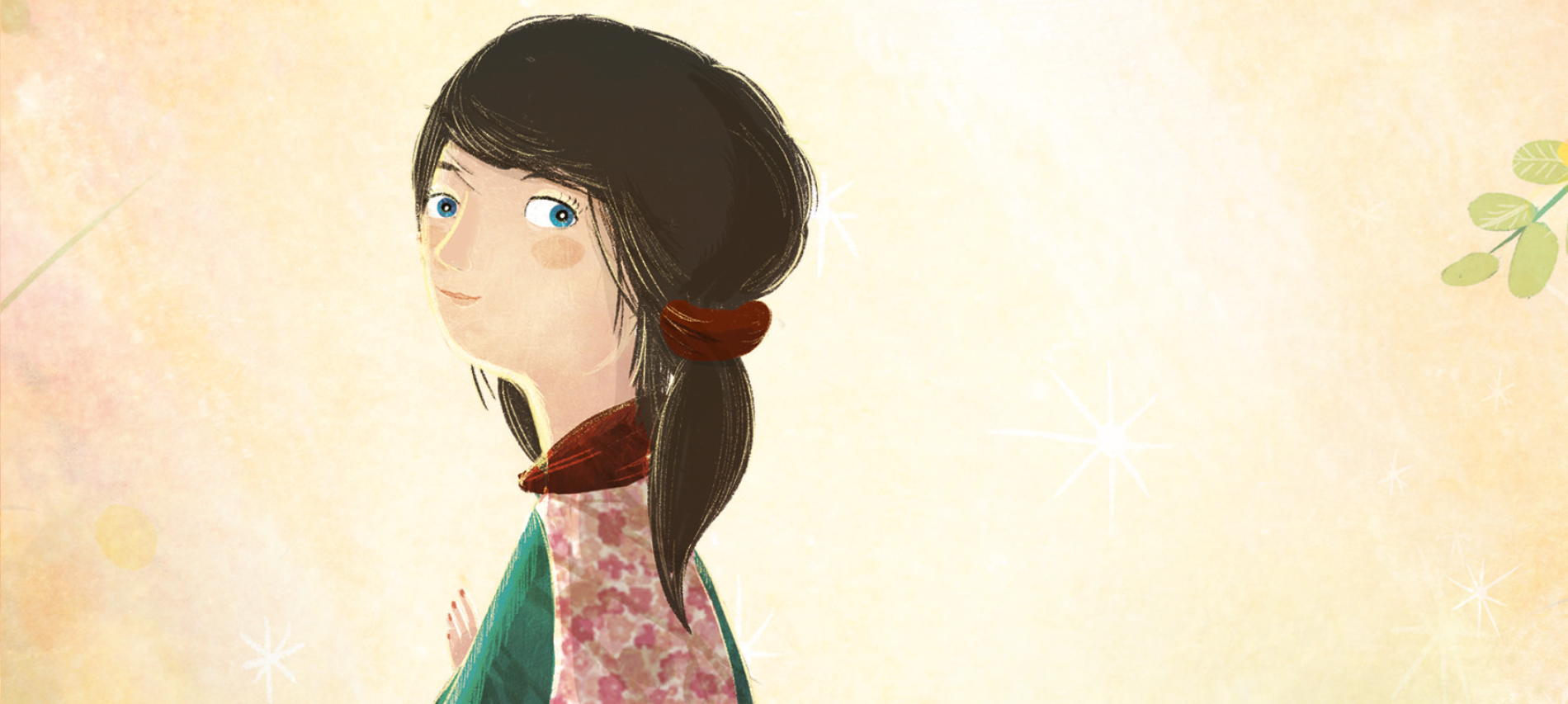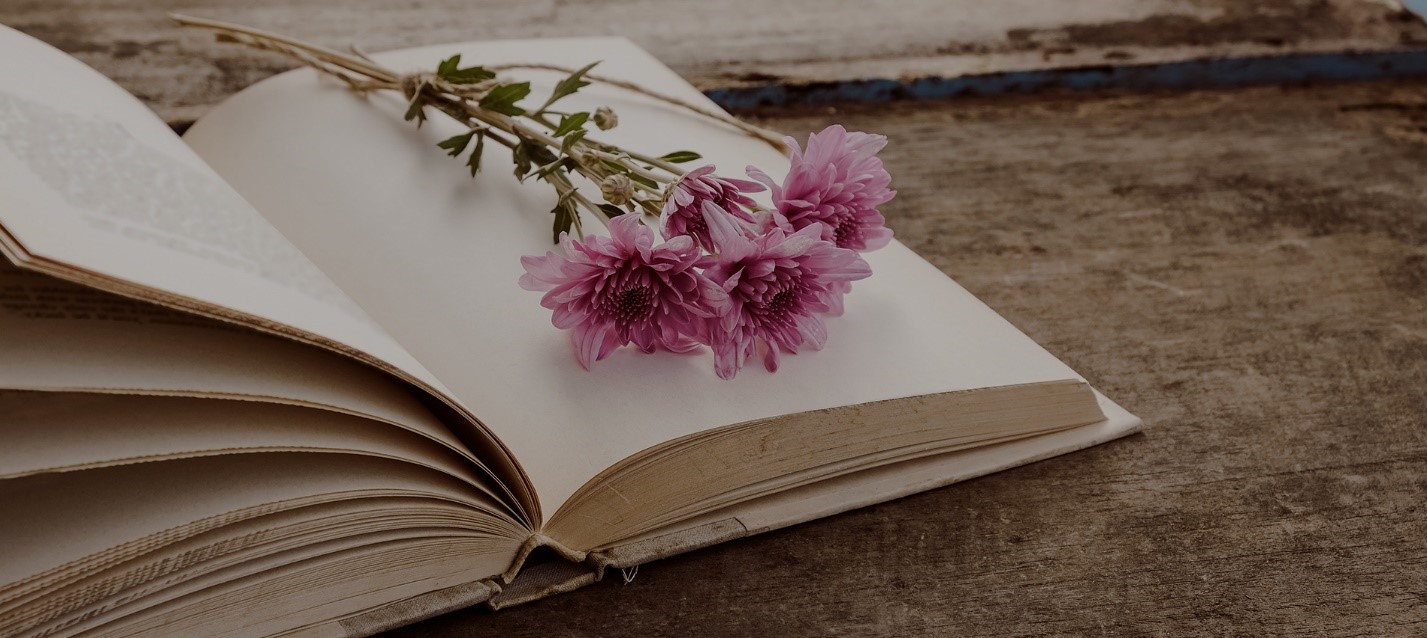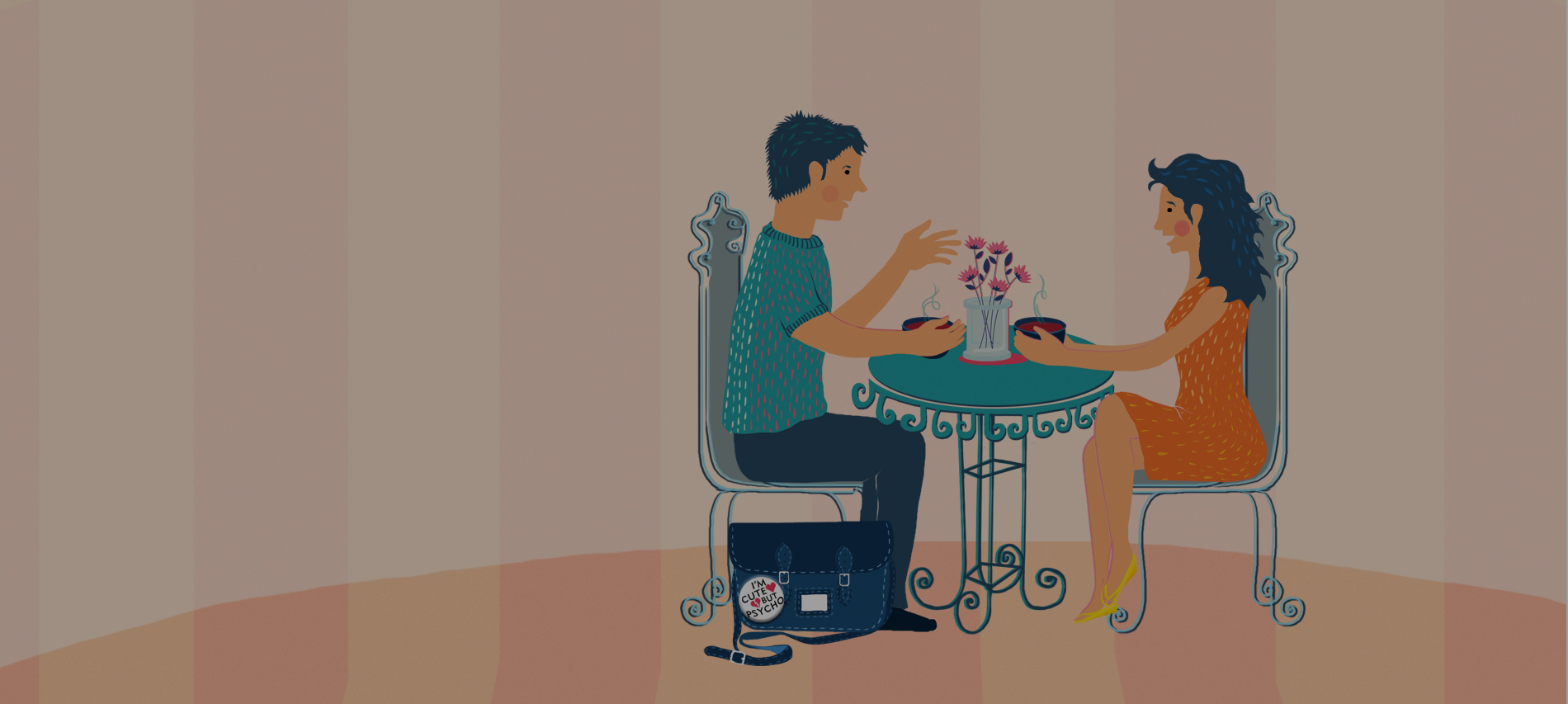After a gamut of jobs, Usha Narayanan pursued a career in writing. The author of 5 successful novels, Narayanan experiments with various genres, ranging from suspense thriller to light-hearted office romance.
Her new novel Prem Purana is a delightful anthology of three stories of love and devotion.
Here are a few things you should know about the author.







How many of these facts did you know about the author?

Tag: love
Discover the world of the gods and goddesses like you have never before
Celebrated author Usha Narayanan’s new book, Prem Purana, is a chronicle of love, longing, and the unexpected trials and tribulations one takes on in the journey of love. The book explores how even the mightiest of Gods and Goddesses have not remained untouched by love — with Ganesha taking on the challenge to please his wives, Ravana sharing an unbreakable bond with Mandodari, and Nala and Damayanti’s love withstanding the test of time.
Here are a few times the Gods surprised us with their deeds in love.
Myriad of stories

Fable of the mouse

The wonders of charming Gajamukha

Lord Ganesha’s vast appetite

Bad angel vs good angel

The game of Chaturanga

The story behind the fall

Hamsa, the cupid

Aren’t these facts fascinating?

What Happens in Haruki Murakami’s ‘Men Without Women’?
In Men Without Women master storyteller Haruki Murakami returns with his signature style, but with a twist. Revolving around the themes of love, loss and existential conundrums, Men Without Women also asks if curiosity is always necessary. It’s this curiosity in which lies the secret of Murakami’s ‘Men Without Women’.
Here’s taking a visual peek into Murakami’s new book.
Drive My Car

Yesterday

An Independent Organ

Kino

Scheherazade

Samsa in Love

Men Without Women

Powerful, thought-provoking, intense, Murakami’s Men Without Women dives deep into those crevices of your heart you didn’t quite know existed.

9 Things You Didn’t Know About Anurag Garg
Anurag Garg studied to be an engineer but was destined to be a writer. He found his forte in writing by putting random thoughts in the form of a heartfelt story. The bestselling author of A Half-Baked Love Story and Love . . . Not for Sale, he is back with another enigmatic tale of friendship and redeeming power of love called Love Will Find A Way.
Here are 9 things you probably didn’t know about the bestselling author:
Mountains calling!

Aren’t we all?

The Storyteller

Wow!

Next time the Indian cricket team qualifies for a final, you know where to be.

Aww!

Woah!

Heart-melting!

Adorable!
A ‘Great Tragedy’: ‘Raymie Nightingale’ — An Excerpt
‘Raymie Nightingale’, by Kate DiCamillo, is a beautiful story of friendships born in a storm. As Raymie realised that everything in her world depends on her, she finds herself competing with her close friends and coping with loss and grief. What emerges as a result are everlasting bonds of friendship that change their lives forever.
Here’s an excerpt from the novel.
There were three of them, three girls.
They were standing side by side.
They were standing to attention.
And then the girl in the pink dress, the one who was standing right next to Raymie, let out a sob and said, “The more I think about it, the more terrified I am. I am too terrified to go on!”
The girl clutched her baton to her chest and dropped to her knees.
Raymie stared at her in wonder and admiration.
She herself often felt too terrified to go on, but she had never admitted it out loud.
The girl in the pink dress moaned and toppled over sideways.
Her eyes fluttered closed. She was silent. And then she opened her eyes very wide and shouted, “Archie, I’m sorry! I’m sorry I betrayed you!”
She closed her eyes again. Her mouth fell open.
Raymie had never seen or heard anything like it.
“I’m sorry,” Raymie whispered. “I betrayed you.”
For some reason, the words seemed worth repeating.
“Stop this nonsense immediately,” said Ida Nee.
Ida Nee was the baton-twirling instructor. Even though she was old – fifty at least – her hair was an extremely bright yellow. She wore white boots that came all the way up to her knees.
“I’m not kidding,” said Ida Nee. Raymie believed her.
Ida Nee didn’t seem like much of a kidder.
The sun was way, way up in the sky, and the whole thing was like high noon in a Western. But it was not a Western; it was baton-twirling lessons at Ida Nee’s house in Ida Nee’s backyard.
It was the summer of 1975.
It was the fifth day of June.
And two days before, on the third day of June, Raymie Clarke’s father had run away with a woman who was a dental hygienist.
Hey, diddle, diddle, the dish ran away with the spoon.
Those were the words that went through Raymie’s head every time she thought about her father and the dental hygienist.
But she did not say the words out loud any more because Raymie’s mother was very upset, and talking about dishes and spoons running away together was not appropriate.
It was actually a great tragedy, what had happened.
That was what Raymie’s mother said.
“This is a great tragedy,” said Raymie’s mother.
“Quit reciting nursery rhymes.”
It was a great tragedy because Raymie’s father had disgraced himself.
It was also a great tragedy because Raymie was now fatherless.
The thought of that – the fact of it – that she, Raymie Clarke, was without a father, made a small, sharp pain shoot through Raymie’s heart every time she considered it.
Sometimes the pain in her heart made her feel too terrified to go on. Sometimes it made her want to drop to her knees.
But then she would remember that she had a plan.
Join Raymie on her quest to find her father, order your copy today!

5 Quotes from Akhil Sharma’s ‘A Life of Adventure and Delight’ Which Make His Book a Must-Read
Stories are, after all, nothing more than accounts of the workings of the human heart and mind in relation to the world. And the mark of a successful storyteller, as we all know, is nothing more than the ability to get under the reader’s skin and tug at their heartstrings. Akhil Sharma’s new collection of short stories — A Life of Adventure and Delight, consolidates his reputation of a master storyteller with eight stories of the fragile human heart, told in a way that’s “as hypnotic as those found in the pages of Dostoyevsky”.
Here are 5 instances from Sharma’s new anthology to convince you to pick up a copy right now.
A retired divorcé, in search of love and companionship, decides to relearn how to impress a woman by reading women’s magazines. But how does his search end?

A young boy explores his relationship with the divine and negotiates with God to get what he wants.

A young boy observes his older cousin grow up to break norms and lead a life that often leaves him in a state of shock.

What happens when you wake up and fall in love with your husband, only for a day?

An ordinary man’s life takes some exceptional turns during a few extraordinary moments. Does his life change forever?

Grab your copy of Akhil Sharma’s fascinating new collection of stories here now!

‘Toward an Impure Poetry’ by Pablo Neruda
Pablo Neruda was a Chilean Nobel Laureate, famous for his surrealist and passionate love poems, along with historical epics and political manifestos. He was regarded as the “the greatest poet of the 20th century in any language” by another South American Nobel Laureate Gabriel Garcia Marquez.
There have been two schools of thought regarding what poetry should stand for and who it should be written for. While one school says poetry should be for the elites, or it should be “pure”, the other school, that Pablo Neruda believed in, felt poetry should be “impure” or depicting the blunt realities of life. This belief of his can be observed throughout his body of work, using metaphors and imageries that are drawn from every day things.
Here is the essay he wrote on why poetry should be impure.
It is good, at certain hours of the day and night, to look closely at the world of objects at rest. Wheels that have crossed long, dusty distances with their mineral and vegetable burdens, sacks from the coal bins, barrels, and baskets, handles and hafts for the carpenter’s tool chest. From them flow the contacts of man with the earth, like a text for all troubled lyricists. The used surfaces of things, the wear that the hands give to things, the air, tragic at times, pathetic at others, of such things—all lend a curious attractiveness to the reality of the world that should not be underprized.
In them one sees the confused impurity of the human condition, the massing of things, the use and disuse of substance, footprints and fingerprints, the abiding presence of the human engulfing all artifacts, inside and out.
Let that be the poetry we search for: worn with the hand’s obligations, as by acids, steeped in sweat and in smoke, smelling of the lilies and urine, spattered diversely by the trades that we live by, inside the law or beyond it.
A poetry impure as the clothing we wear, or our bodies, soup-stained, soiled with our shameful behavior, our wrinkles and vigils and dreams, observations and prophecies, declarations of loathing and love, idylls and beasts, the shocks of encounter, political loyalties, denials and doubts, affirmations and taxes.
The holy canons of madrigal, the mandates of touch, smell, taste, sight, hearing, the passion for justice, sexual desire, the sea sounding—willfully rejecting and accepting nothing: the deep penetraion of things in the transports of love, a consummate poetry soiled by the pigeon’s claw, ice-marked and tooh-marked, bitten delicately with our sweatdrops and usage, perhaps. Till the instrument so restlessly played yields us the comfort of its surfaces, and the woods show the knottiest suavities shaped by the pride of the tool. Blossom and water and wheat kernel share one precious consistency: the sumptuous appeal of the tactile.
Let no one forget them. Melancholy, old mawkishness impure and unflawed, fruits of a fabulous species lost to the memory, cast away in a frenzy’s abandonment—moonlight, the swan in the gathering darkness, all hackneyed endearments: surely that is the poet’s concern, essential and absolute.
Those who shun the “bad taste” of things will fall flat on the ice.
5 Most Memorable Faiz Ahmed Faiz Shayaris to make your day poetic
Faiz Ahmed Faiz is widely regarded as one of the great Urdu poets of the twentieth century, and the iconic voice of a generation. Although he is best remembered for his revolutionary verses that decried tyranny and called for justice, his oeuvre also extended to scintillating, soulful poems of love.
In The Colours of My Heart – a translation of Faiz’s selected, most memorable poems and ghazals by Baran Farooqi – readers will be able to experience a new dimension of the great poet’s genius. Here are five gems that display Faiz’s extraordinary flair for tender hope and quiet longing.
Beloved, Don’t Ask Me For the Love that Was – “Mujhse Pehli Si Muhabbat Mehboob Na Maang”

Don’t ask me to love you the way I did before, my love
I’d imagined life to be bright and glowing because you were in it
What cared I for sorrows other than the joys of pining in your love?
It’s your beauty that keeps springtime intact upon the world
What else remains to be sought in the universe but your eyes?
Speak – “Bol”

Speak, for your lips are free
Speak, for your tongue is still yours
Your upright body belongs to you
Speak, for your soul still is yours
Highway – “Shahraah”

A long, desolate highway
Its gaze fixed on the far horizon
Spreading out its grey beauty
On the breast of the cold earth—
Like a grief-stricken woman
In her desolate home
Dreaming of her absent lover
Lost in thought, each part of her body immersed
in the idea of union.
The Day of Death – “Jis Roz Qaza Aayegi”

Kis tarah aayegi jis roz qaza aayegi
Shaayad iss tarah ki jis taur kabhi awwal-e shab
Be-talab pehle pahal marhamat-e bosa-e lab
Tyranny Giving Lessons in the Fidelity of Love – “Sitam Sikhlaayega Rasm-e Wafa Aise Nahin Hota”

Sitam sikhlaayega rasm-e wafa aise nahin hota
Sanam dikhlaaenge raah-e khuda aise nahin hota
Enthralled by the verses of one of the greatest Urdu poets? Get The Colours of My Heart here!

6 Times Erich Segal Made Us Fall In Love With His Words
Professor, author, screenwriter, Erich Segal’s words were known for winning hearts. While he taught us about the beauty and magic of true love, he also articulated the pain of heartbreak and loss like no one else could. His books are time travelling machines, taking you on journeys into strangers’ lives, helping you figuring out your own.
On his birthday, here are six times he taught us about love, life and everything in between:
When he reminded us that true love cannot be lost.

When he defined the complications of life so easily.

The time we learnt that no one is perfect.

When he taught us the simple trick of true love.

When he perfectly captured the world around us in one simple sentence.

When he dared to show us the sad reality.

His words never fail to make us feel alive and fall in love, over and over again. If you haven’t yet read any of his books, just pick your favourite quote and start with that book! So, which magical world are you going to travel to today?
Taking the Hating Out of Dating
Some take to fishing. Some don’t. It’s as simple as that.
Likewise, with arranged-dating (modern dating expressly for the purpose of finding a spouse). Some thrive on the anticipation of a good catch, while for some (my personal guess is for many) the uncertainty, the awkwardness of a ‘catch and release’ and of course returning empty-handed (again), can be nothing short of a mild coronary.
While my friends and acquaintances invariably fell in the latter anxiety-stricken category they often spoke with wistful resentment of a creature I dubbed as the Overly Enthusiastic Dater [OED].
An effervescent giant ball of sunshine and an energy drink, OEDs apparently don’t exhibit the slightest tremor. In fact they are enthused at the prospect of sharing their hobbies, family composition, occupation, job history and of course the much contentious dietary habits (Veg? Non-veg? Egg? Fish? Wine? Whisky? Smoke?!?) with strangers… again and again and again.
Nerves of steel? Adrenalin junkies? Extreme Extroverts? How do OEDs survive this minefield, not only unscathed but also brimming with enthusiasm?
A few leisurely cuppas and they were spilling the beans. I’m not sure if these ‘skills’ were innate or evolved to protect their tickers, but they do explain the OED’s joie de vivre.
- Date Martyr
Competition is fierce when it comes to far-out dating stories and every girl wants her slice of sympathy as she narrates the cuckoo-capades to a bunch of wide-eyed happily-married couples. Which is why this OED no longer cringes and prays for Potter’s invisibility cloak but rubs her hands in glee (mentally of course) when she encounters a delusional dude.
Delusional Dude 1: “Hi there, Prepare to be amazed and astounded by me”
OED: Beams like a cat that got the cream
Delusional Dude 2: “I’m into crystal gazing which is why I know there are limited fate portals in the next few years. Yes, yes, we just met but we must marry before the portal shuts”
OED: Beams like a cat that got more cream
- Truffle Hunter
This OED won’t waste time researching her date. Instead she scours through a dozen food guides and reviews before she selects the date venue. Tried the Burmese café last time, what next? Isn’t there a new Caramelised Melon Cappuccino in town? How about an experiment in non-judgement at the new ‘dine-in–the-dark’ cafe? Don’t see chappie, don’t judge chappie. He’s not roasted and her taste buds are singing. It’s a win-win.
Dating in the dark doesn’t scare this OED, running out of new eateries does.
- Errand-dater
This OED is an efficiency machine. She lives by the phrase ‘Location, location, location’. She first browses through her pantry, then through her closet, then her medicine cabinet and finally through the now yellowed piece of paper that was once her to-do list. Flour will run out by Monday? Lycra tops have inexplicably shrunk? Great. Now she plans a weekend date at a café in the mall where she can shop for these.
Some say bumping into your date in the hosiery check-out line right before the date is embarrassing, but she says it’s a chance to practise your poker face and strengthen your peripheral vision (as you surreptitiously glance into his shopping basket).
- Date Mate:
The last and final OED (that I know of) is nothing but a social butterfly and a chatterbox at heart. Despite the obvious incompatibility she can’t resist buddying up with her fellow date.
“Maybe the problem is you are address women as ‘yo! hot mamma’. If you don’t mind my asking what’s your relationship with your mum like?”
“I must fix you up with Vina. She too adoooores Justin Bieber.”
“….and that’s why I decided to walk away. What’s your perspective as a guy?”
“Where did you buy this black lace shirt? Stitched? Really? What was the cost per metre?”
Having met OEDs in person was quite revealing. They weren’t super women or the other extreme – oddballs. They were simply women who saw beyond ‘Mission Groom’.
Every coffee date wasn’t a do or die situation, a sword hanging over their heads; in fact there was always an upside – be it a good meal, scratching errands off a list or finding a new buddy.



















